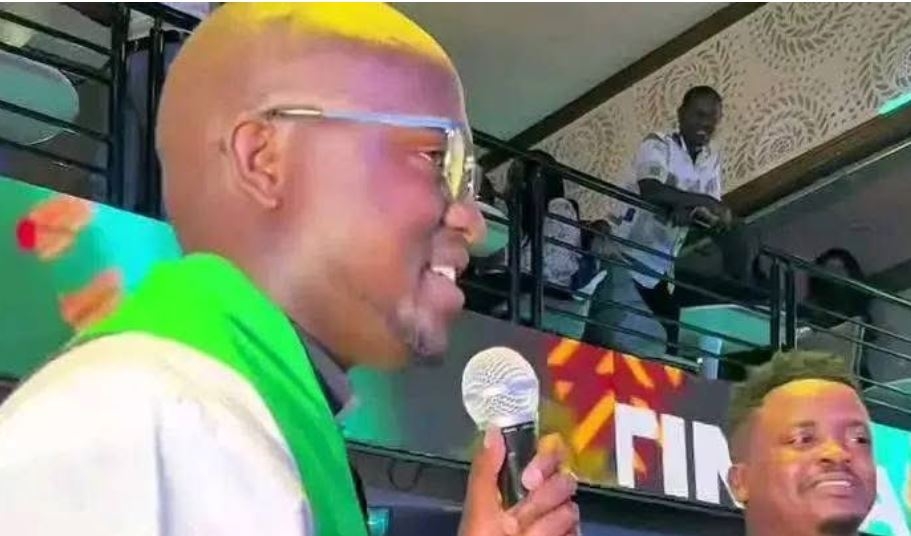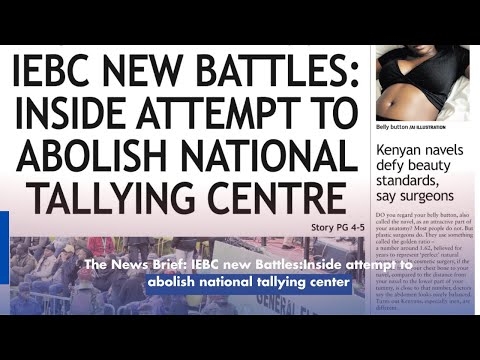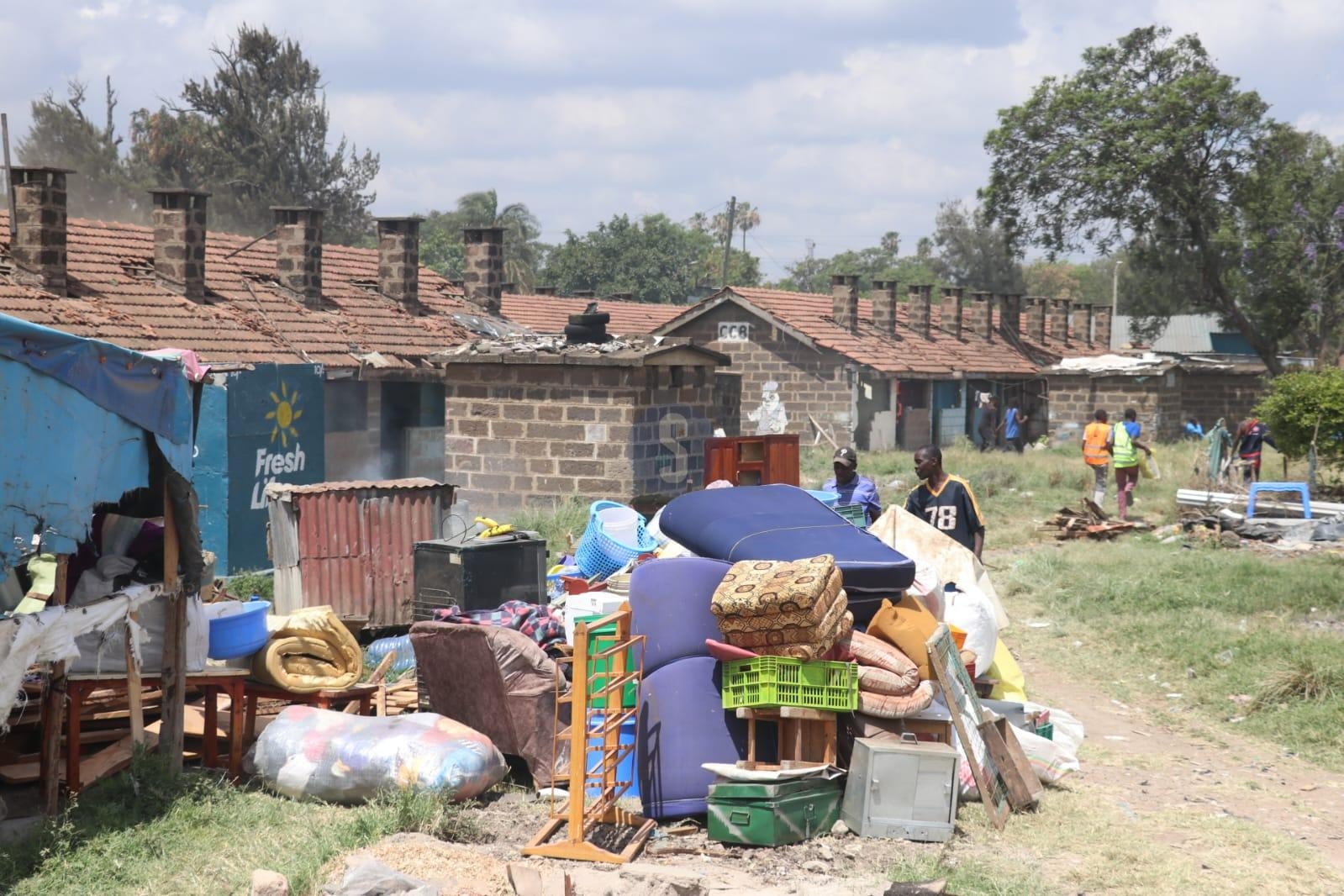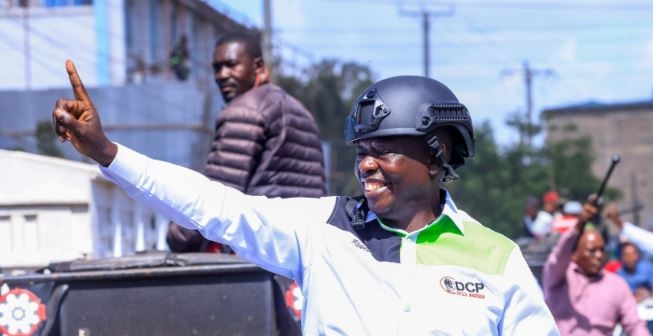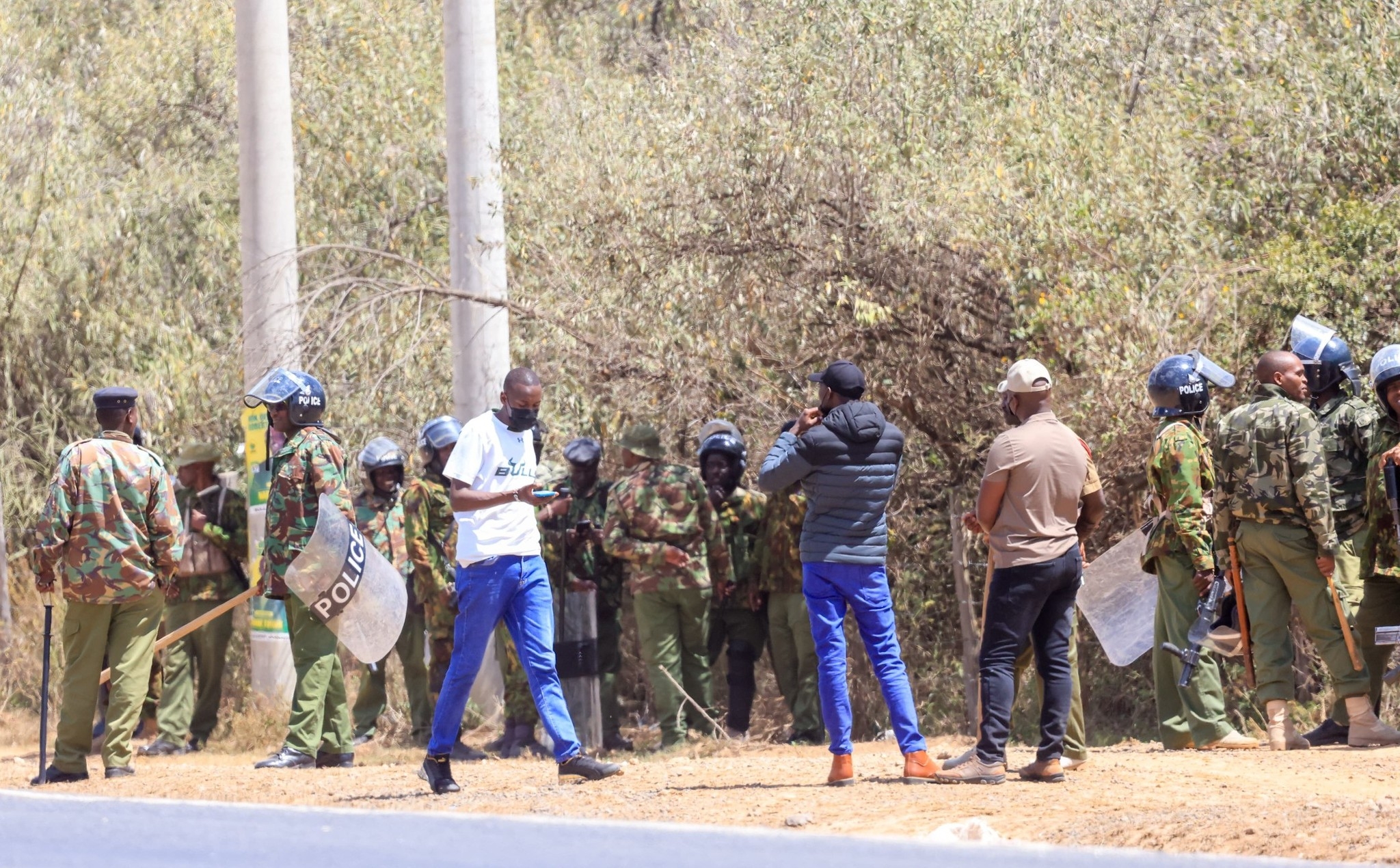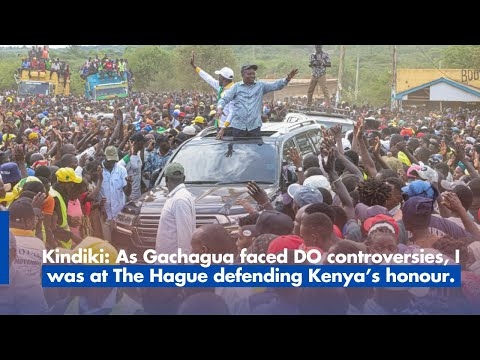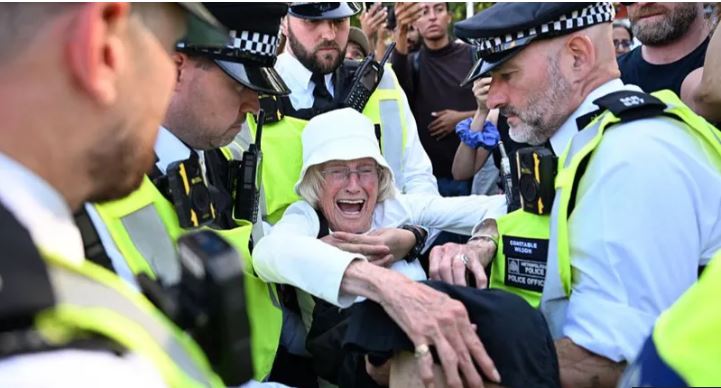
Police have arrested 474 people at a demonstration in London in support of banned group Palestine Action.
The Metropolitan Police said 466 protesters were arrested for supporting the group, five for assaults on police officers, two for public order offences, and one for a racially aggravated offence.
Scores of people simultaneously unveiled handwritten signs with the message "I oppose genocide. I support Palestine Action" at the protest, organised by Defend Our Juries at Westminster's Parliament Square.
It was the biggest protest since the government proscribed the group in July under the Terrorism Act of 2000, making membership of or support for it a criminal offence, punishable by up to 14 years in prison.
No officers were seriously injured, and the Met Police said the number of arrests was the largest made by the force on a single day in the last 10 years.
Home Secretary Yvette Cooper thanked police for their response, while charity Amnesty International described the mass arrests as "deeply concerning".
Footage from the square showed officers moving among the protesters, who were mainly seated on the ground, and speaking to them before leading them away.
Protesters whose details could be confirmed at temporary prisoner processing points nearby were bailed with conditions to return to a police station at a future date and to not attend any further protests in support of Palestine Action.
People who refused to give their details or whose identities could not be verified were taken into custody.
Many of the protesters didn't want to speak to media who came to cover the protest, but one - who didn't give her name - told the BBC: "If they ban Palestine Action, what other group is next? Until we're just no longer allowed to protest anything. That's the opposite of democracy."
Another, Claudia Penna-Rojas, 27, said: "I don't think anyone wants to get arrested, but I'm more concerned with what is happening to people in Palestine right now, and I refuse to be a bystander."
Jacob Ecclestone, 86, said: "I believe in freedom of speech. What this government is trying to do is deeply authoritarian. And it's extremely dangerous."
Earlier, the Met Police had said about 500 to 600 people were in Parliament Square when the protest began, but that "many were onlookers, media or people not holding placards in support of Palestine Action".
At 13:00, when Big Ben chimed, hundreds of people sat on the square pulled out their placards, at which point the police started making multiple arrests at a time, working their way through the crowds.
Protesters patiently waited their turns. Some chose to walk out quietly. Those who refused to move, lying on the ground, were carried out by police to chants of "shame on you" directed at the officers.
The protest comes just days after the first three people to be charged with supporting the group in England and Wales were named.
Yvette Cooper thanked police for their work handling Palestine rights protests across the UK on Saturday, saying there had been a "very small number of people whose actions crossed the line into criminality".
She defended the banning of Palestine Action, which she said was based on "strong security advice following serious attacks the group has committed" as well as "plans and ideas for further attacks, the details of which cannot yet be publicly reported due to ongoing legal proceedings".
"Many people may not yet know the reality of this organisation, but the assessments are very clear - this is not a non-violent organisation. UK national security and public safety must always be our top priority."
Shadow home secretary Chris Philp said protesters supporting Palestine Action "should feel the full force of the law".
Chief executive of Amnesty International, Sacha Deshmukh, said people outraged by the "ongoing genocide" in Gaza were "entitled under international human rights law to express their horror".
"The protesters in Parliament Square were not inciting violence and it is entirely disproportionate to the point of absurdity to be treating them as terrorists," he said.
"We have long criticised UK terrorism law for being excessively broad and vaguely worded and a threat to freedom of expression. These arrests demonstrate that our concerns were justified."
Security expert Lizzie Dearden told the BBC that the laws the protesters were arrested under "were not designed for a group of this nature or a group of this size".
"When (the Terrorism Act) was drafted in the late Nineties, the kind of terrorist group that was really being envisaged were groups like the IRA, al-Qaeda, armed militant groups that were operating often abroad.
"So the law is being applied in a completely new way."
Organisers Defend Our Juries claimed there were more than 1,000 "sign-holders" at the protest - and a large number had not been arrested.
Responding, the Met Police said: "That claim simply isn't true."
Defend our Juries said the turnout "shows how repulsed and ashamed people are about our government's ongoing complicity in a livestreamed genocide".
It added that "Palestine Action and people holding cardboard signs present no danger to the public at large".
As well as the protest by Defend Our Juries, two marches were organised by Palestine Coalition and pro-Israeli group Stop the Hate to be held on consecutive days in central London.
The Metropolitan Police said it had drawn officers in from other forces to help form a "significant policing presence" in the capital as it faces a busy weekend.
Before Saturday's protest, more than 200 people had been arrested across the country for similar reasons since the ban was implemented by the home secretary last month.
On Thursday two women and a man were also charged with showing support for a proscribed terror group. They are due to appear at Westminster Magistrates' Court on 16 September, the Metropolitan Police said.
At the end of July, the High Court ruled that Palestine Action would be able to challenge its proscription.
Lawyers for the group's co-founder Huda Ammori have argued that the ban breaches the right to free speech and has acted like a gag on legitimate protest. The government says the ban is justified because it narrowly targets a group that has been organising serious criminality.
MPs voted to proscribe the group after activists broke into RAF Brize Norton in June, spraying two Voyager aircraft with red paint and causing £7m worth of damage. Palestine Action took responsibility for the incident at the time.




